Farm roads present unique challenges in maintenance that require special attention. In this guide, I will provide you with essential steps and techniques to effectively maintain and repair your farm roads. From tackling potholes and surface erosion to ensuring proper drainage, we’ll cover it all.
So, whether you’re a farmer or a landowner, join me as we dive into the world of farm road maintenance and unlock the key to keeping your roads in top shape. Let’s get started!
Understanding the Importance of Farm Road Maintenance
Farm roads play a crucial role in rural areas, providing vital transportation routes for farmers, agricultural workers, and local communities. However, these roads often face unique challenges due to their remote locations and the heavy usage they endure. That’s why farm road maintenance is of utmost importance, ensuring smooth and safe transportation for all.
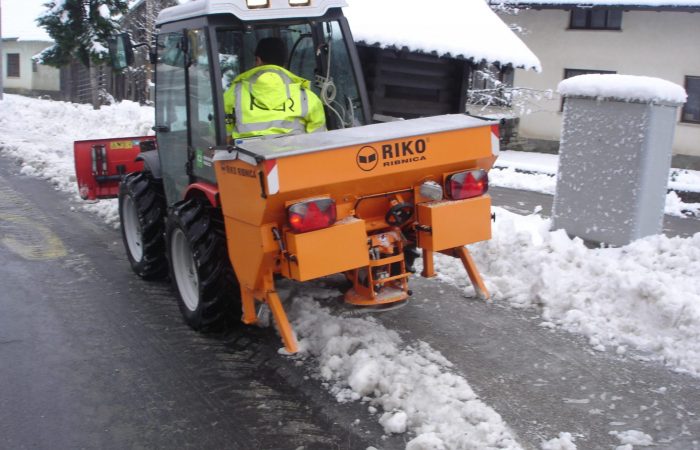
One of the key reasons farm road maintenance is essential is because these roads are often located away from towns and cities, making them susceptible to neglect and lack of proper infrastructure. Without adequate signage, lighting, and road markings, farm roads can become hazardous, especially during low visibility conditions. Additionally, rural roads, particularly gravel ones, are prone to wear and tear, leading to potholes, surface erosion, and drainage problems.
By prioritizing farm road maintenance, you not only enhance road conditions but also extend their lifespan. Regular maintenance techniques such as grading the road surface and addressing drainage issues can prevent major deterioration. Moreover, well-maintained farm roads significantly reduce the risk of accidents, safeguarding the well-being of both drivers and pedestrians.
Benefits of Farm Road Maintenance:
- Enhances road conditions and extends lifespan
- Reduces the risk of accidents
- Improves visibility and promotes safe transportation
- Prevents excessive wear and tear
- Promotes efficient and smooth agricultural operations
In conclusion, farm road maintenance is not just an added expense; it is a necessary investment in the safety and efficiency of rural transportation. By understanding the importance of regular maintenance and adopting appropriate techniques, farm owners and local communities can ensure that their roads remain in optimal condition for years to come.
Essential Techniques for Farm Road Maintenance
Farm road maintenance requires a combination of techniques to address common issues and ensure long-term road quality. Here are some essential techniques to consider:
1. Farm Road Grading
Farm road grading is a crucial technique used to level the road surface and promote proper drainage. By removing uneven areas, potholes, and ruts, grading improves the overall safety and usability of the road. Regular grading helps prevent water accumulation, which can lead to surface erosion and deterioration. It also enhances traction for vehicles, reducing the risk of accidents.
2. Road Maintenance Equipment
Investing in appropriate road maintenance equipment can significantly improve the efficiency and effectiveness of farm road maintenance. Equipment such as graders, compactors, and sweepers can help with grading, compacting, and debris removal. These tools ensure that the road surface remains smooth and free from hazards. Utilizing the right equipment saves time and effort, allowing for more efficient maintenance practices.
3. Road Maintenance Contractors
In some cases, it may be beneficial to hire professional road maintenance contractors. These experts have the knowledge, experience, and specialized equipment required to handle farm road maintenance effectively. They can assess the condition of the road, recommend suitable repair techniques, and execute the necessary repairs with precision. Hiring contractors ensures that the maintenance work is done to a high standard and in a timely manner, saving the farm owner valuable time and resources.
By implementing these essential techniques for farm road maintenance, you can enhance road conditions, improve safety, and extend the lifespan of your farm roads.
Best Practices for Farm Road Repair
When it comes to farm road repair, it is essential to follow best practices to ensure long-lasting results. Whether you are dealing with potholes, surface erosion, or other issues, applying the right techniques and materials is crucial. Here are some key factors to consider:
- Surface Preparation: Before starting any road repair work, proper surface preparation is essential. This involves cleaning the area, removing debris and loose materials, and ensuring a stable foundation for the repair process.
- Patching: Patching is a common method used to address specific areas of damage, such as potholes. It involves removing the damaged section and replacing it with suitable materials, such as gravel or asphalt, to restore the road’s integrity.
- Resurfacing: In cases where the road’s surface has deteriorated significantly, resurfacing may be necessary. This process involves applying a new layer of material, such as asphalt, to improve the road’s structural strength and provide a smoother driving surface.
Materials and Techniques
Choosing the right materials and techniques is crucial for effective farm road repair. Factors such as traffic volume, soil conditions, and budget must be considered when making these decisions. Here are some commonly used materials and techniques:
- Gravel: Gravel is a popular choice for farm road repair due to its affordability and ease of installation. It provides good drainage and can be easily leveled to match the road’s surface.
- Asphalt: Asphalt is a more durable and smoother option that is commonly used for resurfacing farm roads. It offers excellent traction and can withstand heavy traffic, making it suitable for high-traffic areas.
- Road Stabilization: In some cases, road stabilization techniques may be necessary to address soil instability and prevent future road damage. This may involve adding stabilizing agents or incorporating geotextiles to improve the road’s strength and stability.
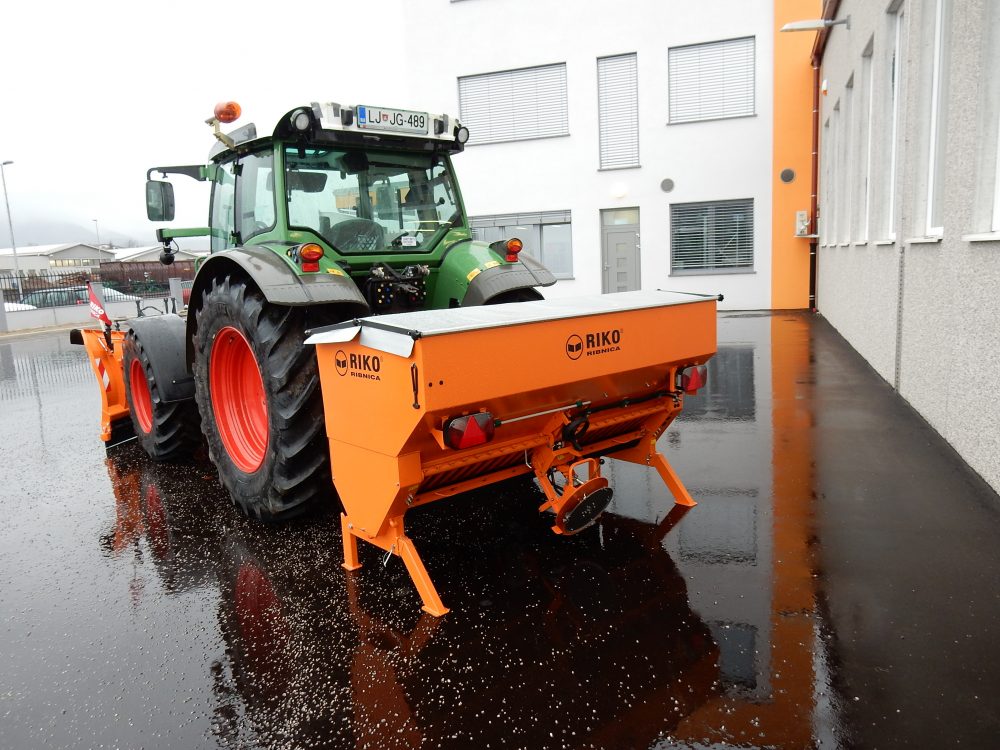
Implementing regular inspections and timely repairs is essential to prevent minor road issues from turning into major failures. By following these best practices and using the appropriate materials and techniques, you can ensure the longevity and safety of your farm roads.
Safety Considerations for Farm Road Users
Farm road maintenance goes beyond repairing the roads themselves; it also involves prioritizing the safety of those who use them. To ensure the well-being of road users, several safety considerations should be taken into account.
1. Proper Signage and Road Markings
Clear and visible signage is essential for guiding drivers and alerting them to any potential hazards ahead. Proper road markings, such as centerlines, edge lines, and reflective markers, can enhance visibility, especially during low-light conditions. By ensuring adequate signage and road markings, farm road users can navigate the roads safely and effectively.
2. Adequate Lighting
Proper lighting is crucial for visibility, especially during nighttime travel. Installing adequate lighting along farm roads, particularly at intersections, curves, and other areas prone to reduced visibility, is essential for preventing accidents. Well-lit roads provide a safer environment for all road users, including pedestrians and cyclists.
3. Addressing Potential Hazards
Farm roads often have unique hazards that require attention to ensure the safety of road users. Sharp bends, wildlife crossings, and encounters with large farm vehicles can pose risks. Implementing measures such as warning signs, reduced speed limits, and designated wildlife crossing points can help mitigate these hazards.
By incorporating these safety considerations into farm road maintenance practices, both farm owners and road users can enjoy safer and more secure travel experiences. Whether it’s maintaining proper signage and lighting or addressing potential hazards, prioritizing safety ensures a smooth and secure journey on rural roads.
Farm Road Maintenance for All Seasons
Farm road maintenance is a year-round undertaking that requires adapting to the ever-changing weather conditions. By implementing season-specific techniques, you can ensure that your farm roads remain in optimal condition throughout the year. Here are some essential road maintenance techniques to consider for each season:
Spring:
- Inspect the roads for any damage caused by winter weather, such as potholes or surface erosion.
- Address drainage issues by clearing out ditches and culverts to prevent water accumulation.
- Perform farm road grading to level the road surface and promote proper drainage.
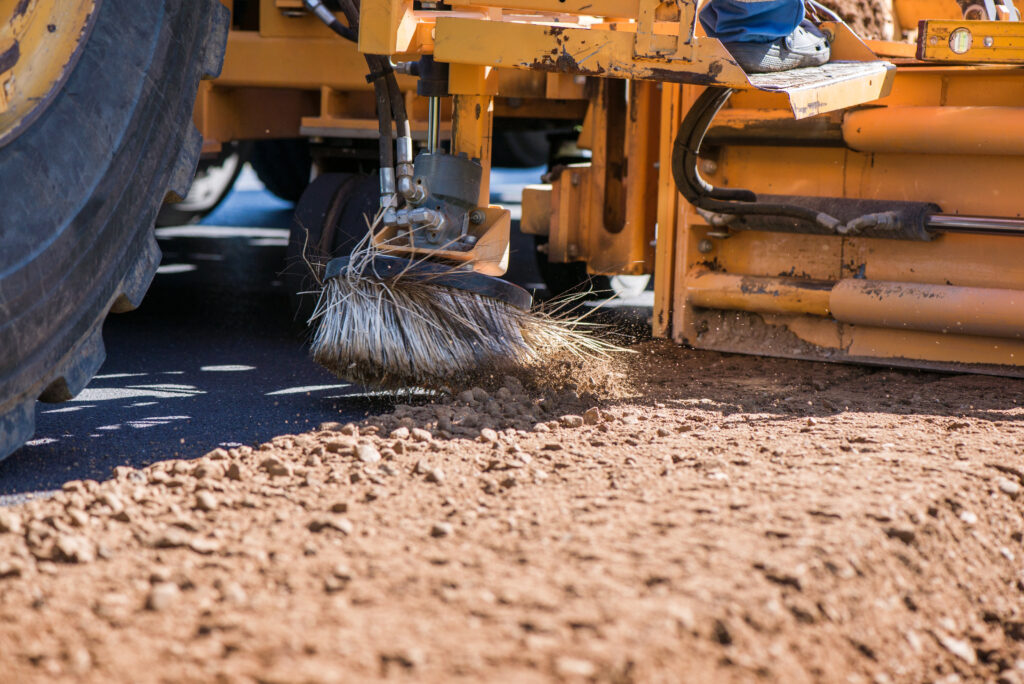
Summer:
- Continue regular inspections to identify any new issues that may have emerged.
- Maintain proper vegetation control by trimming overhanging branches and clearing roadside vegetation.
- Repair any minor surface defects to prevent them from worsening over time.
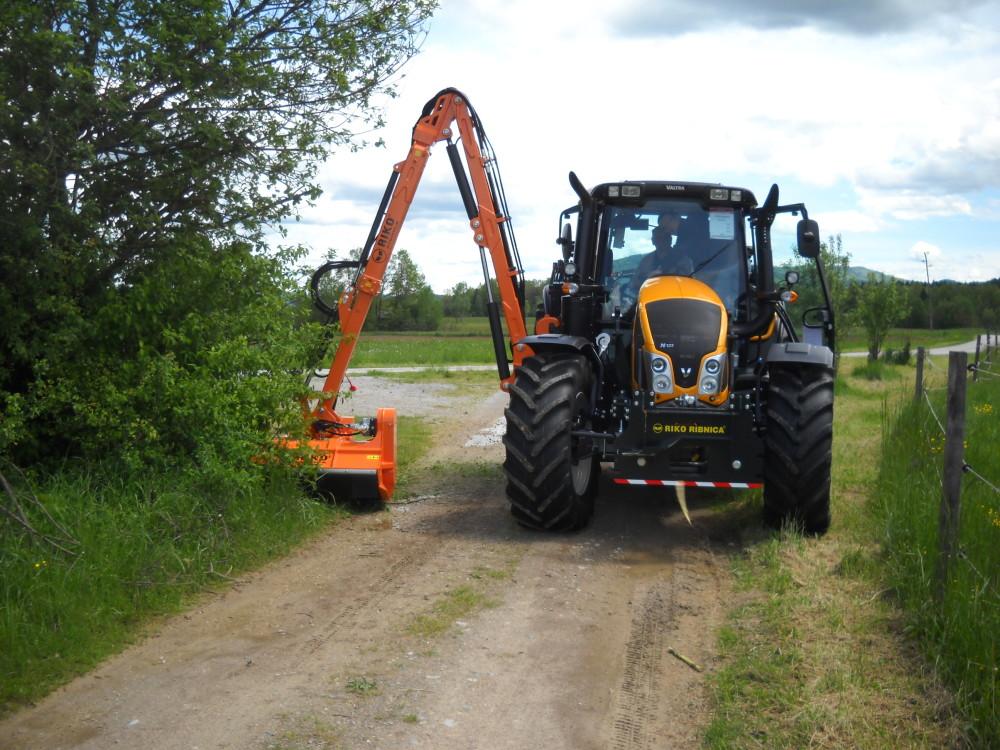
Fall:
- Prepare the roads for the upcoming winter by patching any potholes or cracks.
- Clear fallen leaves and debris from the road surface to prevent clogging of drainage systems.
- Consider applying anti-icing treatments to minimize the formation of ice during winter.
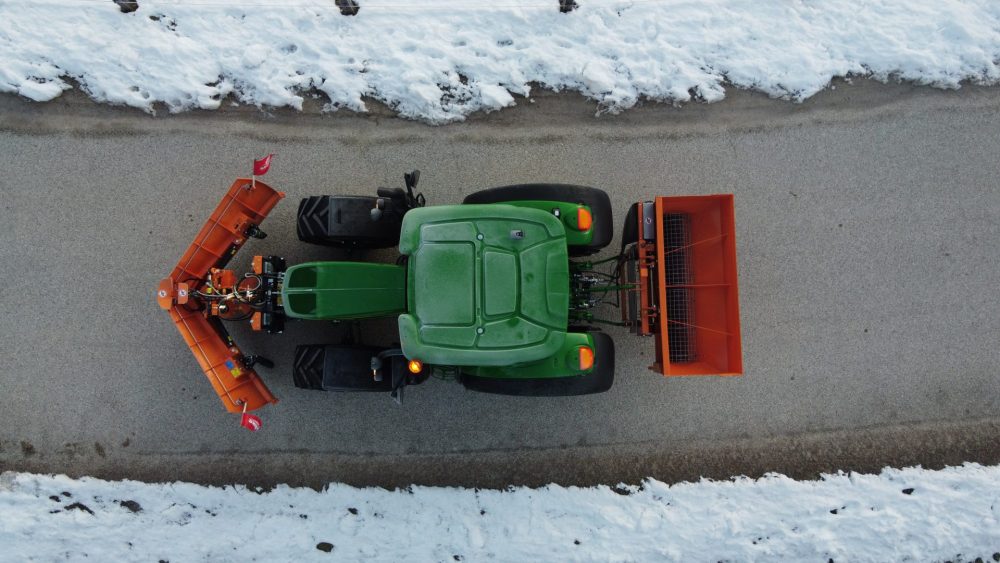
Winter:
- Regularly monitor road conditions and promptly clear snow to maintain safe driving conditions.
- Utilize suitable de-icing materials to minimize ice formation and improve traction.
- Conduct periodic inspections to identify any damage caused by freezing and thawing cycles.
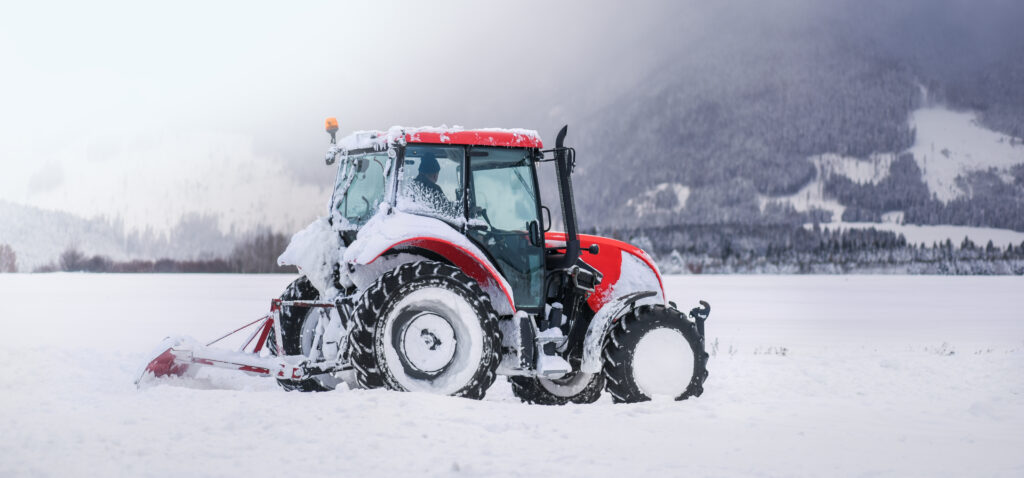
By following these farm road maintenance techniques specific to each season, you can effectively manage the challenges posed by weather conditions and ensure the longevity and safety of your farm roads.
The Benefits of Professional Farm Road Maintenance
When it comes to farm road maintenance, hiring professional road maintenance contractors can offer a range of benefits. These experts have the knowledge and experience to handle all aspects of farm road maintenance, ensuring high-quality results that meet your specific needs.
One of the key advantages of professional farm road maintenance is the efficient use of specialized equipment. Road maintenance contractors have access to state-of-the-art machinery, tools, and materials that are specifically designed for farm road repair and construction. This allows them to perform tasks more quickly and effectively, saving you time and effort.
In addition, professional road maintenance contractors are well-versed in the best practices and techniques for farm road maintenance. They understand the unique challenges of maintaining rural roads and can provide tailored solutions to address issues such as potholes, surface erosion, and drainage problems. By entrusting your farm road maintenance to the experts, you can ensure that the work is done correctly and in a manner that extends the lifespan of your roads.
Furthermore, professional farm road maintenance can help maximize your investment in road construction. Whether you are building new farm roads or repairing existing ones, road maintenance contractors can provide expert guidance and advice. They can assess your specific needs, recommend the most suitable materials and techniques, and ensure that the construction or repair project is carried out to the highest standards.



